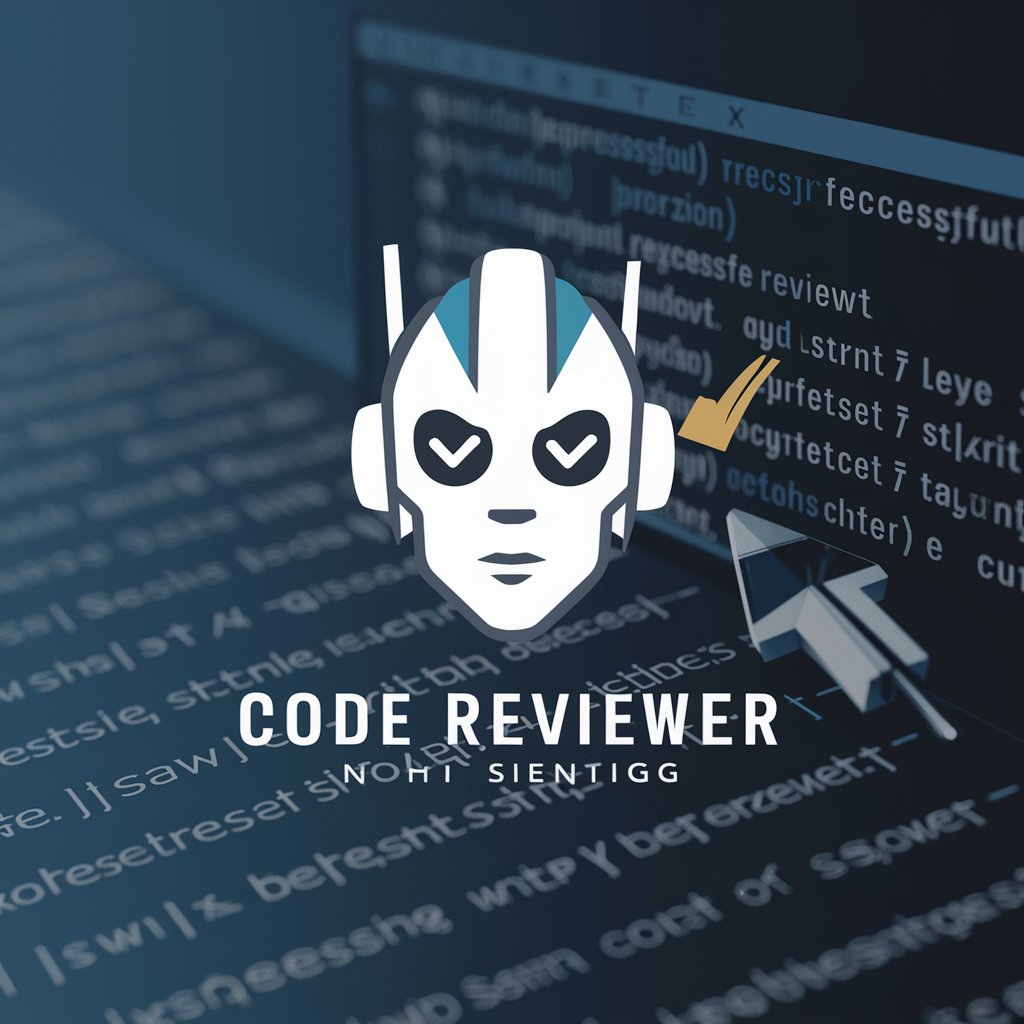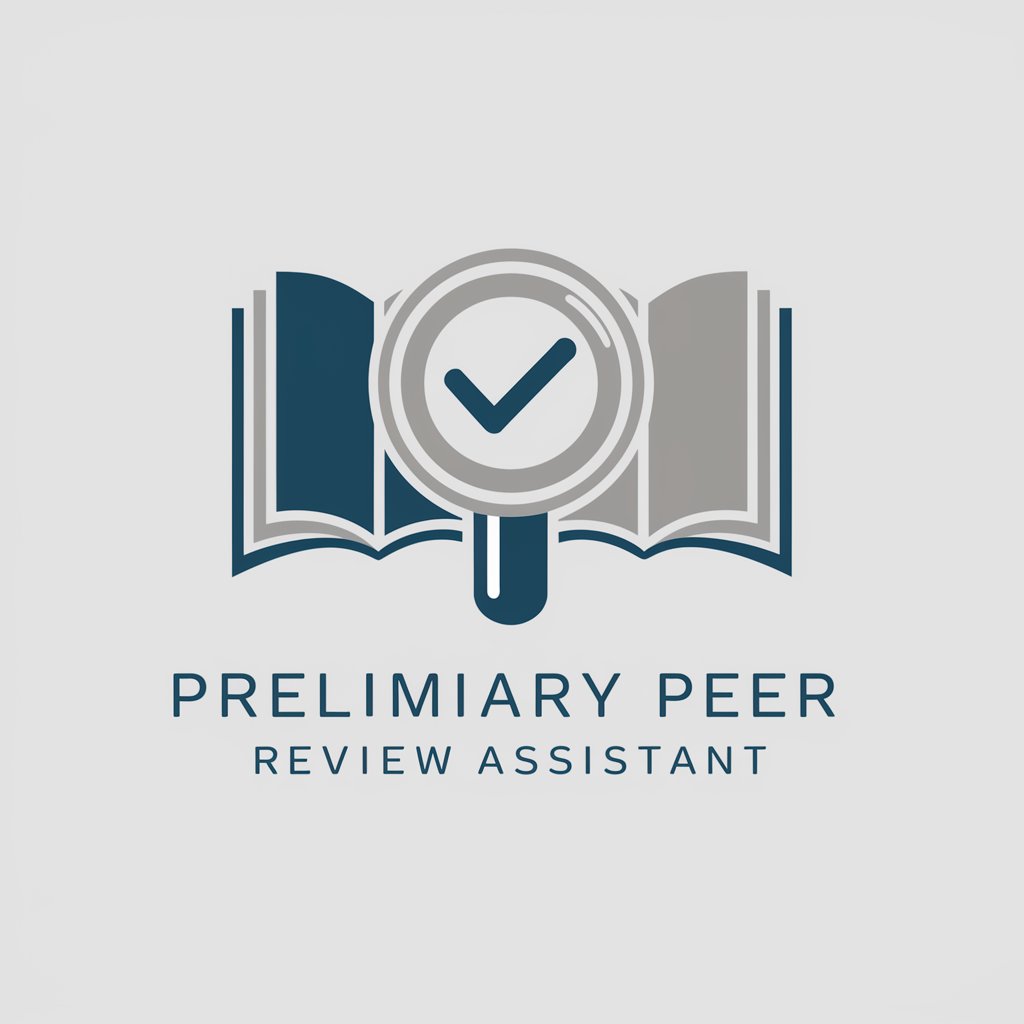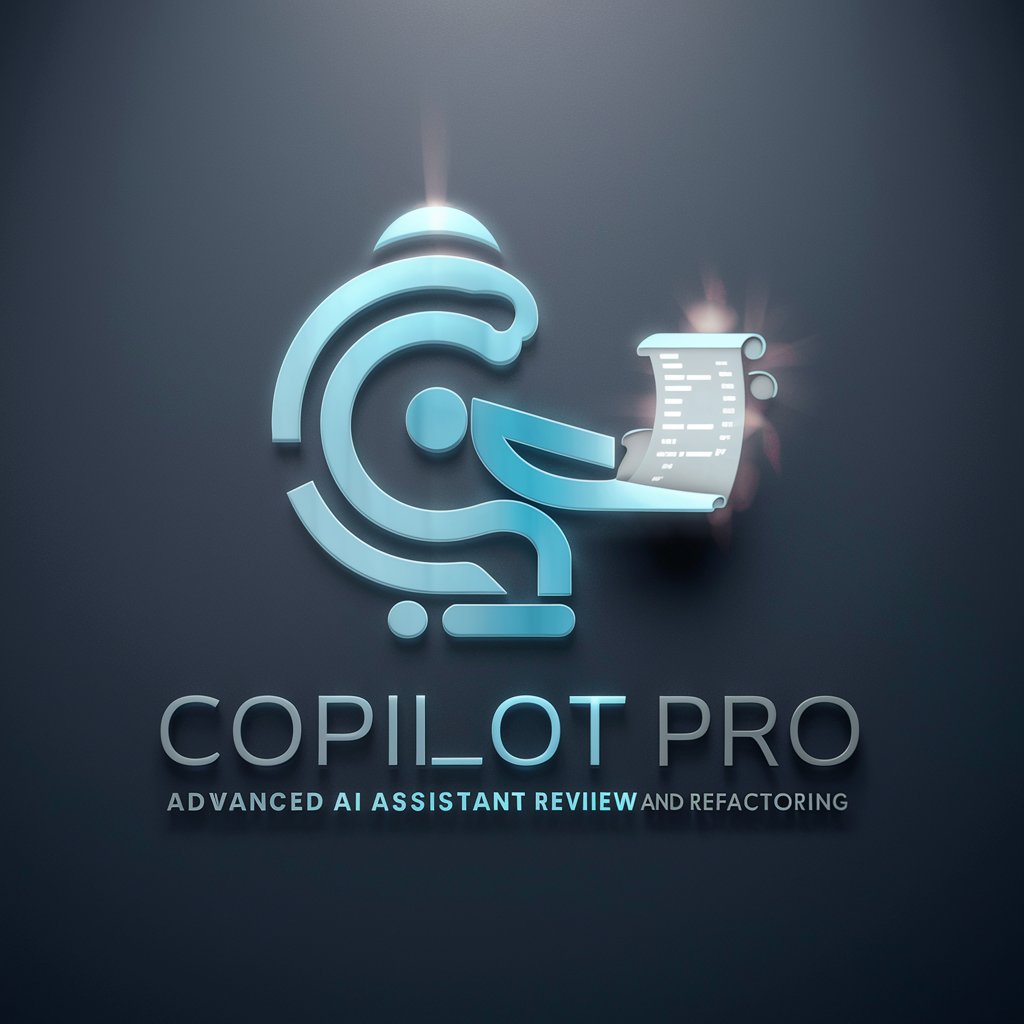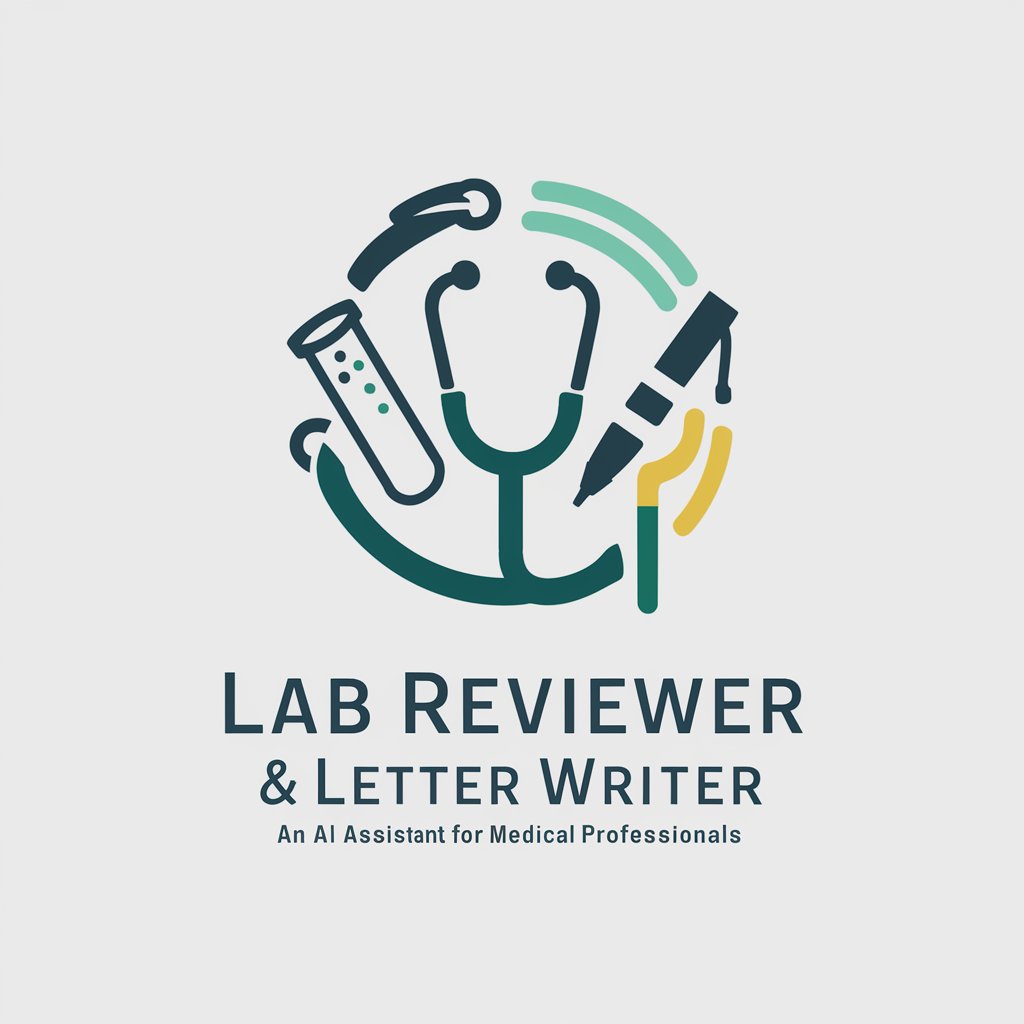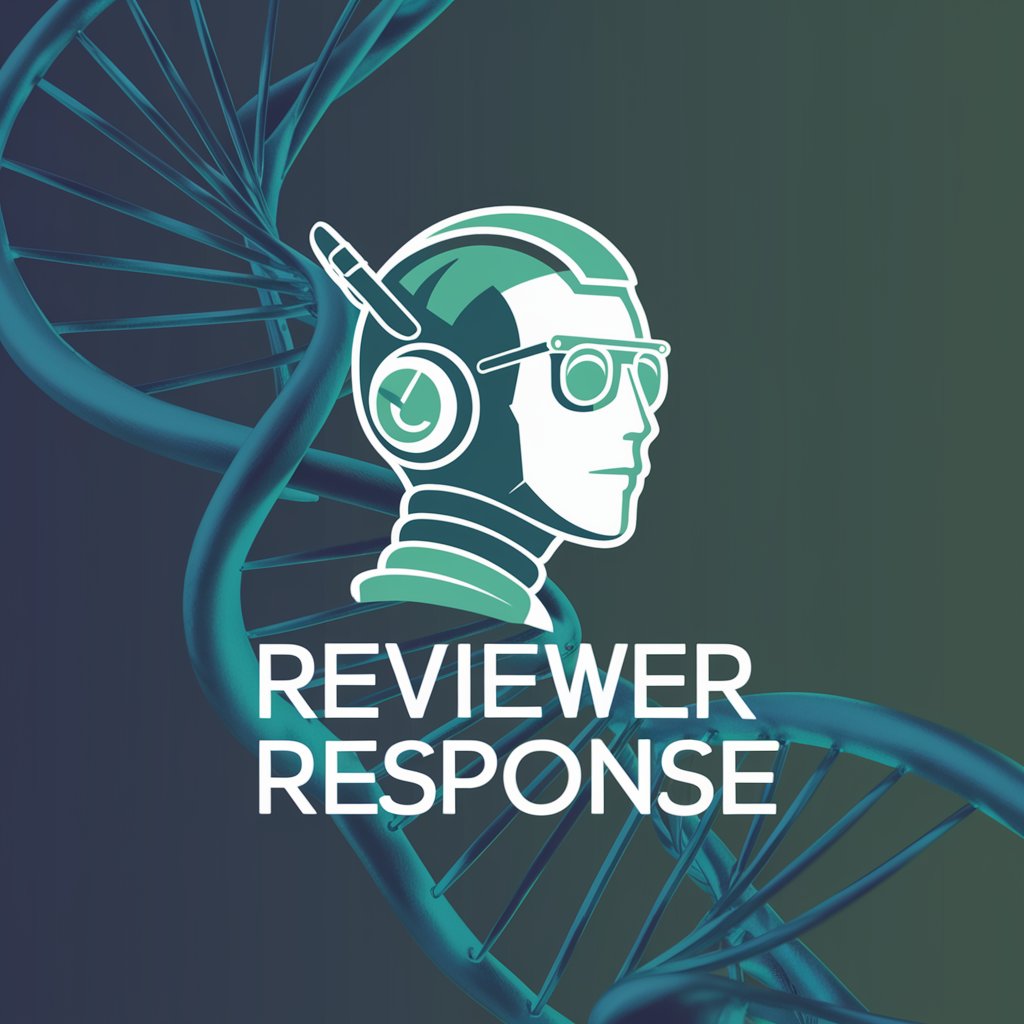
🤝 Peer Collab Review Helper 📝 - AI-Powered Review Assistance

Enhance collaboration with AI-guided peer reviews
Help
Daily Briefing
I Want My Own GPT!
Feedback
Schedule a peer review session
Generate a feedback summary report
Provide best practices for conducting peer reviews
Get Embed Code
Introduction to the Peer Collab Review Helper
The Peer Collab Review Helper is designed to assist users in conducting structured peer reviews, aiming to enhance the quality of work through collaborative feedback. This tool is tailored to guide reviewers in providing constructive feedback, scheduling review sessions, and compiling feedback into coherent summaries. It is equipped to offer best practices for peer review, ensure discussions are respectful and productive, and generate reports based on collected feedback. For example, in a scenario where a group of academic researchers are preparing a joint paper, the Peer Collab Review Helper could facilitate the review process by providing a set of tailored questions and prompts, aiding in scheduling their review sessions, and helping to compile and summarize the feedback for improvement of the paper. Powered by ChatGPT-4o。

Main Functions of the Peer Collab Review Helper
Guided Review Questions
Example
Provides a set of questions designed to elicit comprehensive, constructive feedback on specific aspects of the work being reviewed.
Scenario
In a software development team, the tool could generate specific questions focusing on code quality, scalability, and documentation to guide peer review of a new feature's codebase.
Scheduling Assistance
Example
Facilitates the organization of review sessions by helping to coordinate times that work for all participants.
Scenario
For a group of university students working on a group project, the tool could assist in finding suitable times for everyone to meet and conduct a peer review session, ensuring all members can participate.
Feedback Compilation and Summarization
Example
Aggregates individual feedback from review sessions and synthesizes it into a coherent summary.
Scenario
In a corporate setting, after a series of peer reviews on a project proposal, the tool could compile all feedback, highlight common themes, and summarize suggestions for improvement, making it easier for the project team to implement changes.
Ideal Users of the Peer Collab Review Helper Services
Academic Researchers
Researchers working on joint papers or projects can use the service to facilitate constructive peer feedback, ensuring their work is of high quality before publication.
Software Development Teams
Teams looking to improve code quality and project outcomes through structured peer code reviews can benefit from the guided questions and feedback compilation features.
Educational Groups
Students working on group projects can leverage the tool to schedule review sessions, provide and receive constructive feedback, and improve their collaborative work.
Corporate Project Teams
Teams working on business projects or proposals can use the tool to streamline the review process, ensuring all team members have an opportunity to contribute feedback and suggestions for improvement.

How to Use Peer Collab Review Helper
1. Start without Signup
Begin by accessing yeschat.ai for a complimentary trial, bypassing the need for registration or ChatGPT Plus.
2. Choose Your Review Type
Select the type of peer review you require assistance with, such as academic writing, code review, or design critique.
3. Invite Participants
Use the platform to invite peers to your review session through email or a shared link.
4. Conduct the Review
Utilize the provided structured questions and prompts to guide the review process, ensuring comprehensive and constructive feedback.
5. Compile and Share Feedback
After the session, compile the feedback using the tool's features and share the results with participants for further action or improvement.
Try other advanced and practical GPTs
🎓✍️ Lesson Craft Pro Wizard 🧙♂️📚
Empowering Education with AI

📚✍️ Academic Grader Pro 🍎🎓
Empowering education with AI-powered grading.

📚✨ LearnSphere Resource Wizard 🧙♂️✨
Empowering learning through AI innovation.

🎓 Classroom Harmonizer Pro 📚
Streamline Teaching with AI

🌟 Inclusive Ed Helper 📘✨
Empowering Inclusive Education

🎓 Engage-&-Learn Tutor Bot 🤖
Empowering education with AI

⏰ Time-Flux Productivity Coach 🚀
AI-Powered Productivity Enhancement

🎓 Ultimate Scholarship Hunter 🏆
Empowering your scholarship journey with AI.

📚✏️ Academic Project Pal GPT 🎓💡
Empower Your Studies with AI

🤖🎓 EngageMate Classroom GPT
Elevating Discussions with AI

🔬✨ Virtual Lab Wizard Pro 🧪
Empowering labs with AI-driven insights

🎓🎲 EduQuest Game Master GPT 🌟
Transforming Learning with AI-Powered Games

FAQs About Peer Collab Review Helper
What makes Peer Collab Review Helper unique?
It offers a structured framework for peer reviews, leveraging AI to facilitate efficient and productive feedback sessions across various domains.
Can I use it for non-academic reviews?
Yes, it's designed for a wide range of review types, including professional documents, design projects, and code reviews.
How does it ensure the quality of feedback?
By providing tailored questions and prompts, it guides reviewers to give detailed and constructive feedback, enhancing the overall quality.
Is it suitable for team collaboration?
Absolutely, it's ideal for teams seeking to improve work quality through collaborative review sessions, fostering a culture of continuous learning.
Can feedback be anonymous?
Yes, it supports anonymous feedback options, encouraging honest and unbiased reviews from participants.
